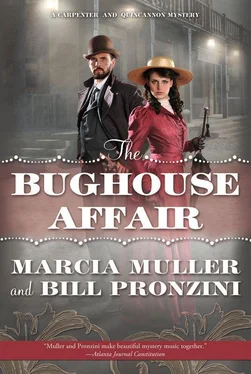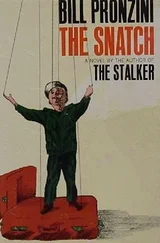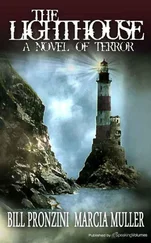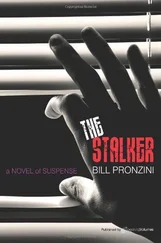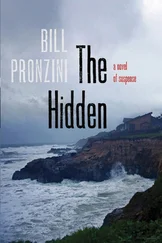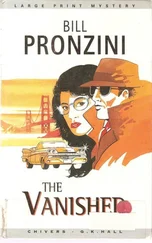Bill Pronzini - The Bughouse Affair
Здесь есть возможность читать онлайн «Bill Pronzini - The Bughouse Affair» весь текст электронной книги совершенно бесплатно (целиком полную версию без сокращений). В некоторых случаях можно слушать аудио, скачать через торрент в формате fb2 и присутствует краткое содержание. Жанр: Исторический детектив, на английском языке. Описание произведения, (предисловие) а так же отзывы посетителей доступны на портале библиотеки ЛибКат.
- Название:The Bughouse Affair
- Автор:
- Жанр:
- Год:неизвестен
- ISBN:нет данных
- Рейтинг книги:5 / 5. Голосов: 1
-
Избранное:Добавить в избранное
- Отзывы:
-
Ваша оценка:
- 100
- 1
- 2
- 3
- 4
- 5
The Bughouse Affair: краткое содержание, описание и аннотация
Предлагаем к чтению аннотацию, описание, краткое содержание или предисловие (зависит от того, что написал сам автор книги «The Bughouse Affair»). Если вы не нашли необходимую информацию о книге — напишите в комментариях, мы постараемся отыскать её.
The Bughouse Affair — читать онлайн бесплатно полную книгу (весь текст) целиком
Ниже представлен текст книги, разбитый по страницам. Система сохранения места последней прочитанной страницы, позволяет с удобством читать онлайн бесплатно книгу «The Bughouse Affair», без необходимости каждый раз заново искать на чём Вы остановились. Поставьте закладку, и сможете в любой момент перейти на страницу, на которой закончили чтение.
Интервал:
Закладка:
“Nor Dodger Brown from me,” John vowed.
7
QUINCANNON
Even in daylight hours Quincannon walked soft and wary, and made sure his Navy Colt was fully loaded, when he entered the heart of the nine square blocks that comprised the Barbary Coast.
The district, named for the coast of North Africa where Arab pirates attacked Mediterranean ships, housed every imaginable type of crime and vice and the thousands of thieves, cutthroats, footpads, swindlers, crooked gamblers, shanghaiers, and hordes of prostitutes who carried them out. Sudden death lurked in its crowded streets and buildings, the danger so great that no coppers in uniform ventured there after dark except in twos and threes and heavily armed with pistols, Bowie knives, and skull-bashing truncheons a foot long. Only the most notorious felons were pursued and caught by the police, and of those, few were ever punished for their crimes.
For the most part, though he was known as a detective, Quincannon was tolerated in the district. He had lived and worked in the city long enough to make the acquaintance of several Barbary Coast denizens, among them members of the underclass who were willing to sell information for cash; he caused no trouble and gave no grief while within its boundaries; and if he chanced to be after one of the scruffs who inhabited the Coast, he made the fact known to such prominent members of the ruling class as Ezra Bluefield-men who were not averse to giving up one of their own in return for money or favors. Sabina didn’t quite approve of these sometimes less-than-scrupulous dealings, but she admitted that more often than not they produced results, and trusted him not to cross a line that would endanger the agency’s reputation.
His first stop on today’s venture into the Coast was Jack Foyles’ on Stockton Street, a known hangout of Dodger Brown’s. Foyles’ was a shade less disreputable than most wine dumps, if only because it was equipped with a small lunch counter where its habitues could supplement their liquid sustenance with stale bread and a bowl of stew made from discarded vegetables, meat trimmings, bones, and chunks of tallow. Otherwise, there was little to distinguish it from its brethren. Barrels of “foot juice” and “red ink” behind a long bar, rows of rickety tables in three separate rooms lined with men and a few women of all types, ages, and backgrounds, a large open-floored area to accommodate those who had drunk themselves into a stupor. Porters who were themselves winos served the cheap and deadly drink in vessels supplied by junkmen-beer glasses, steins, pewter mugs, cracked soup bowls, tin cans. There was much loud talk, but never any laughter. Foyles’ customers had long ago lost their capacity for mirth.
No one paid Quincannon the slightest attention as he moved slowly through the crowded rooms. Slurred voices that spanned the entire spectrum of society rolled surflike against his ears: lawyers, sailors, poets, draymen, road bums, scholars, factory workers, petty criminals. There were no class distinctions here, nor seldom any trouble; the drinkers were all united by failure, bitterness, disillusionment, old age, disease, and unquenchable thirst for the grape. If there was anything positive to be said about wine dumps, it was that they were havens of democracy. Most customers would be here every day, or as often as they could panhandle or steal enough money to pay for their allotment of slow death, but a few, not yet far gone, were less frequent visitors-binge drinkers and slummers who found the atmosphere and the company to their liking. Many of these were crooks of one stripe or another, Dodger Brown among them.
But there was no sign of the Dodger today. Quincannon questioned two of the porters; one knew him and reported that Brown hadn’t been to Foyles’ in more than a week. Did the porter know where the lad might be found? The porter did not.
Quincannon left Foyles’ and continued on his rounds of the devil’s playground. During the daylight hours, the district seemed quiet, almost tame-a deceit if ever there was one. Less than a third as many predators and their prey prowled the ulcerous streets as could be found here after sundown; the worst of the rapacious were creatures of the night, and it was the dark hours when the preponderence of their victims-mainly sailors off the ships anchored along the Embarcadero-succumbed to the gaudy lure of sin and wickedness.
Some of the more notorious gambling dens and parlor houses were open for business, as were the more scabrous cribs and deadfalls, but they were thinly populated at this hour. And mostly absent was the nighttime babel of pianos, hurdy-gurdies, drunken laughter, the cries of shills and barkers, and the shouts and screams of victims. Quincannon was anything but a prude, having done his fair share of carousing during his drinking days, but the Coast had never attracted him. He preferred to satisfy his vices in more genteel surroundings.
Near Broadway there was a section of run-down hotels and lodging houses. He entered one of the latter and had words with the desk clerk, a runty chap named Galway with whom he’d done business before. Galway admitted to having seen Dodger Brown a time or two in recent weeks; he thought the Dodger might be residing at Foghorn Annie’s, one the seaman’s boarding houses on the waterfront.
Just outside the Barbary Coast on Montgomery Street, Quincannon found a hack-he and Sabina both preferred cabs to trolleys and cable cars when clients were paying expenses-and was shortly delivered to the Embarcadero. The trip turned out to be a waste of time. Scruffs were known to seek shelter among seafaring men now and then, by pretending to be former sailors themselves or by paying extra for the protective coloration. Dodger Brown was known at Foghorn Annie’s, but not as a current resident. Visits to two other houses in the area produced neither the Dodger nor a clue to his whereabouts.
Hunger prodded Quincannon into a waterfront eatery, where he made short work of a dozen oysters on the half shell, a large bowl of fish stew, and a slab of peach pie. His appetite had always been prodigious. He had inherited all of his father’s lusty appetites, in fact, along with his genteel Southern mother’s love for poetry. Sabina had once remarked that he was a curious mixture of the gentle and the stone-hard, the sensitive and the unyielding. He supposed that was an accurate assessment, and the reason, perhaps, that he was a better detective than Thomas L. Quincannon, the fearless rival of Allan Pinkerton in the nation’s capital during the Civil War. He knew his limitations, his weaknesses. His father had never once admitted to being wrong, considered himself invincible-and had been shot to death while on a fool’s errand on the Baltimore docks. John Frederick Quincannon intended to die in bed at the age of ninety. And not alone, either.
Another hack returned him to the outskirts of the Barbary Coast. He found and spoke with three more individuals who had sold him information in the past-a Tar-Flat hoodlum named Luther James, a bunco steerer who went by the moniker of Breezy Ned, and a “blind” newspaper vendor known as Slewfoot. None of them had anything worthwhile to sell this time.
Enough of roaming the Coast, Quincannon decided. The time had come to call on Ezra Bluefield again. He had already approached the man once within the past week, seeking information on the house burglaries and possible fencing of the loot, and Bluefield grew testy when he was asked for too many favors. But if there was one lad in the devil’s playground who could find out where Dodger Brown was holed up, it was Bluefield.
Quincannon walked to Terrific Street, as Pacific Avenue, the district’s main artery, was called, turned into an alley, and entered a large building in mid-block. A sign in bloodred letters above the entrance proclaimed the establishment to be the SCARLET LADY SALOON. A smaller sign beneath it stated: EZRA BLUEFIELD, PROP.
Читать дальшеИнтервал:
Закладка:
Похожие книги на «The Bughouse Affair»
Представляем Вашему вниманию похожие книги на «The Bughouse Affair» списком для выбора. Мы отобрали схожую по названию и смыслу литературу в надежде предоставить читателям больше вариантов отыскать новые, интересные, ещё непрочитанные произведения.
Обсуждение, отзывы о книге «The Bughouse Affair» и просто собственные мнения читателей. Оставьте ваши комментарии, напишите, что Вы думаете о произведении, его смысле или главных героях. Укажите что конкретно понравилось, а что нет, и почему Вы так считаете.
